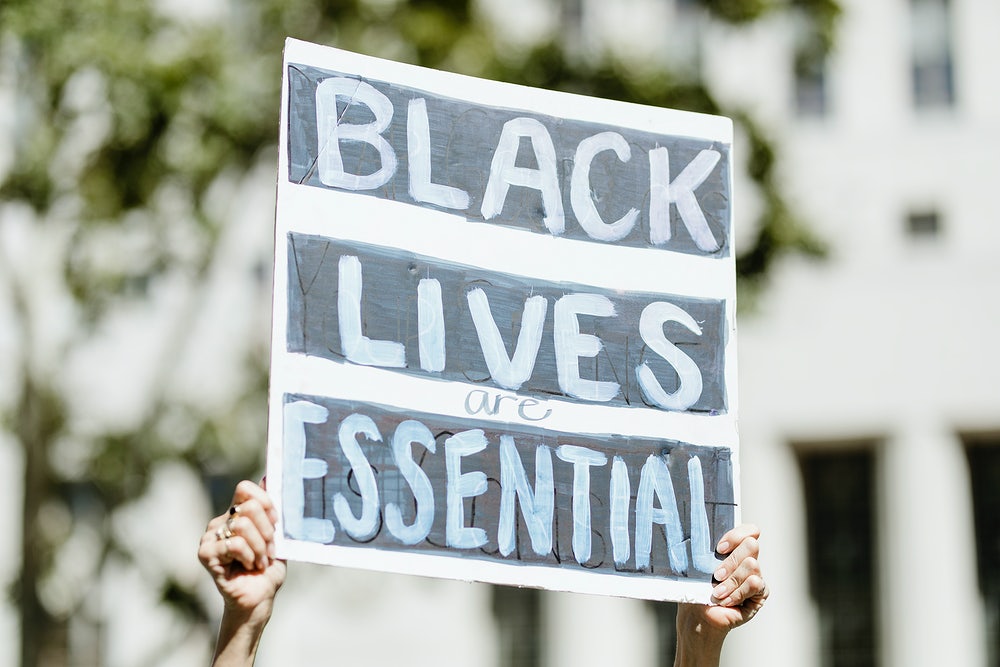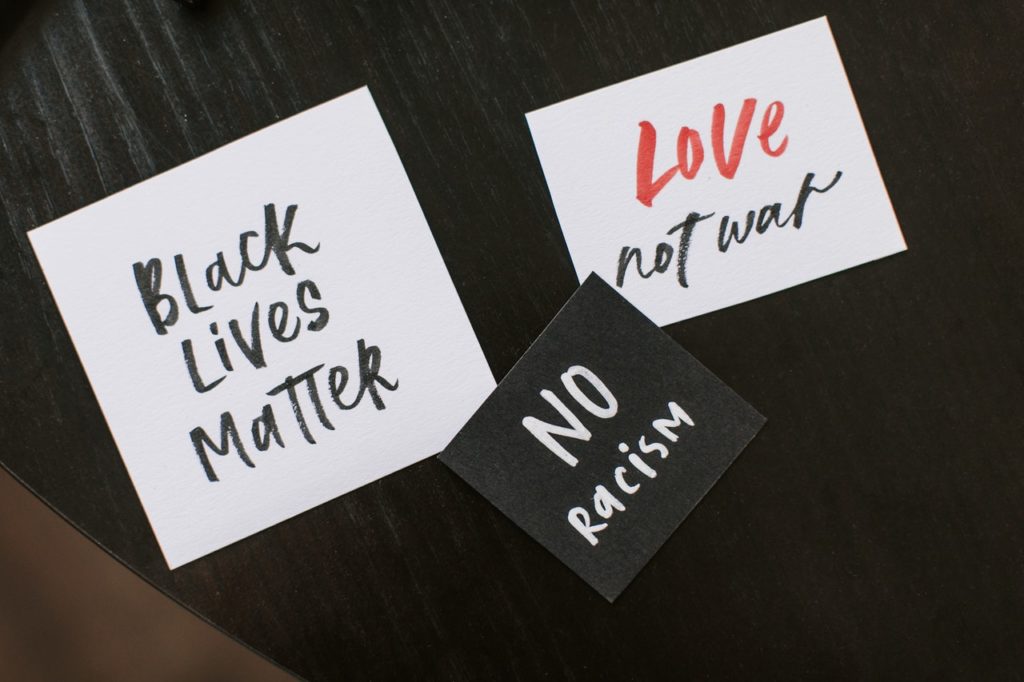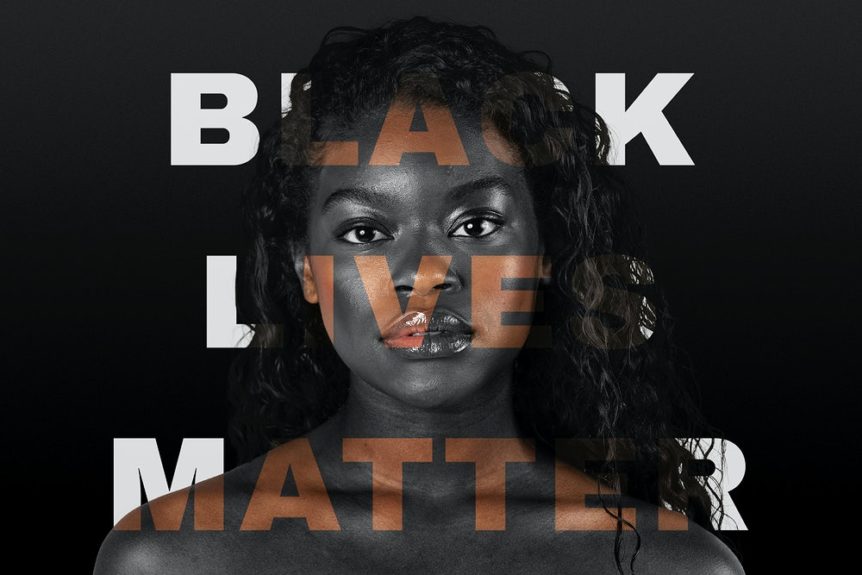In March 2016, three protesters were allegedly roughed up at a Trump rally in Louisville, Kentucky. The three later sued Trump on the grounds of “incitement to riot,” claiming that they suffered injuries at the hands of his supporters after he yelled to “get ‘em out of here”.
As a result, they were pushed, shoved, assaulted, and unceremoniously removed from the campaign venue for repeatedly interrupting Trump’s 35-minute speech, in what they termed as a “peaceful protest.”
The suit, which was brought before the 6th US Circuit Court of Appeals, was dismissed on the basis that their claim against Trump and his campaign team was not valid under Kentucky law, since his speech was protected under the First Amendment. In the court’s opinion, his utterances did not specifically advocate for nor support violence.
With the ongoing Black Lives Matter protests across the country calling for an end to the racial injustices faced by members of the African American community, the question is: Do the same First Amendment principles apply? Can you sue the Black Lives Matter Movement for any injuries you sustain(ed) as the direct result of protests?
Here’s everything you need to know.
Social Movement Definition
A social movement is essentially a group of loosely organized individuals or organizations whose activities seek to achieve a particular goal – which is often of a political or social nature.
The Occupy Wall Street, Civil Rights, and the Black Lives Matter movements are some of the most notable examples of social movements in recent times.
The activities of these types of organizations generally have three agendas:
- To create change
- To resist change
- To offer a political voice to disenfranchised members of the society
Now, violence in social movements is not uncommon, although the definition of the term in such scenarios is often broad. Nonetheless, it is generally considered to be the damage to and/or destruction of property, and the death/injury of people.
So, if you sustain injuries in social protests or end up incurring losses due to damage to your property, can you sue?
Black Lives Matter Lawsuit 2017
In July 2016, a police officer sustained injuries while responding to Black Lives Matter protests in Louisiana. According to court documents, he was struck by a concrete block that was hurled at him while attempting to quell the escalating violence.

This resulted in injuries to his head, brain, and jaw. He also got a couple of his teeth knocked out in the process.
In his lawsuit, he argued that DeRay Mckesson – one of BLM’s most prominent supporters – and the Black Lives Matter movement in general, should be held liable for the injuries he sustained. He further asserted that Mckesson should have foreseen the possibility of things going awry and, therefore, acted negligently in that regard.
BLM Lawsuit Dismissed
In his ruling, Chief Judge Brian Jackson of the US District Court dismissed the suit on the basis that “Black Lives Matter” cannot be sued since it is, in essence, a “social movement” – much in the same way that no individual can sue the Civil Rights or the LGBT Rights movement.
Lawsuits can only be brought against legal entities and not loosely organized social movements. He further stated that Mckesson isn’t directly liable for the actions of the protestors since he did not commit the offense himself, nor did he incite others to act violently.
Jackson used a Supreme Court precedent that has been widely interpreted as a sanctuary for protestors. It protects them against liability for damages and/or losses they did not directly cause.
Lawsuit Appeal
When the case was brought before a three-judge bench at the US 5th Circuit Court of Appeals, their decision overturned the previous ruling, citing that the matter should be presented before a jury to allow them to hear and issue a verdict on Mr. Mckesson’s alleged negligence, and the extent to which he should be held liable.
The three-judge panel argued that Mckesson failed to exercise “reasonable care” when he led protesters onto the highway and engaged in a confrontation with the police, the direct result of which led to the injury of the plaintiff.
Lawyers, legal scholars, and the American Civil Liberties Union (ACLU) balked this decision, fearing that it could have far-reaching consequences for protesters across the country. They argued that allowing the case to proceed in such a manner would be an infringement to the First Amendment rights of protesters.
If protest organizers can be sued for the action of anyone present at their protests, then no citizen would dare organize such demonstrations.
ACLU lawyers appealed to the Supreme Court to hear the case citing that the 5th Circuit Court Ruling directly defies the Court’s earlier precedent in the NAACP v. Claiborne Hardware landmark ruling.
One of the three judges in the Circuit Court panel has since changed his vote. He defended the fact that the First Amendment right to free speech does indeed cover unruly demonstrations/protests as well.
What Does the First Amendment Protect?
The First Amendment may only be 45 words long, but 227 years since its adoption, it is still the source of endless debates among judges, lawyers, lawmakers, and legal scholars alike over its interpretation.

Here are the five freedoms it protects:
- Speech
- Religion
- Press
- Assembly
- Freedom to petition the government for reparation of grievances
The freedom to protest is protected in the Constitutional right to peaceful assembly and freedom of speech. Based on Supreme Court precedence dating back to the 1960s, even so-called “hate-speech” is allowed, unless it is specifically used to incite violence.
Keep in mind, though, that as much as the First Amendment protects citizens against government limitations on the freedom of expression, it doesn’t restrict private employers for setting their own rules.
What Does the First Amendment Not Protect
Not all categories of speech enjoy First Amendment protection. They include:
- Blackmail
- Child pornography
- Defamation
- Fighting words
- Incitement to impending lawless conduct
- Obscene speech
- Perjury
- Solicitation to commit a crime
- True threats
The Constitutional right to protest does not include:
- Endangering the welfare of others. For instance, organizing or taking part in a protest that blocks traffic without a permit
- Blocking people from accessing buildings or walking on a sidewalk
- Protest activities that trespass on private property
- Interfering with, touching, or verbally antagonizing law enforcement officers
- Taking part in a protest while carrying weapons or drugs
The Jury Is Still Out
So, can you sue Black Lives Matter? Well, the answer to this is still up in the air, based on the 5th Circuit reversal of the District Court’s decision.
At this point, it is up to the Supreme Court to determine whether it is Constitutional to file a lawsuit against the BLM protest organizers. As far as suing the BLM movement is concerned, the answer to this is – no, you can’t. The reason for this is simple – BLM is a loosely organized social movement and not a legally “suable” entity.
If you have any legal questions about liability as it relates to the BLM movement, feel free to chat online with a Laws101.com attorney.
